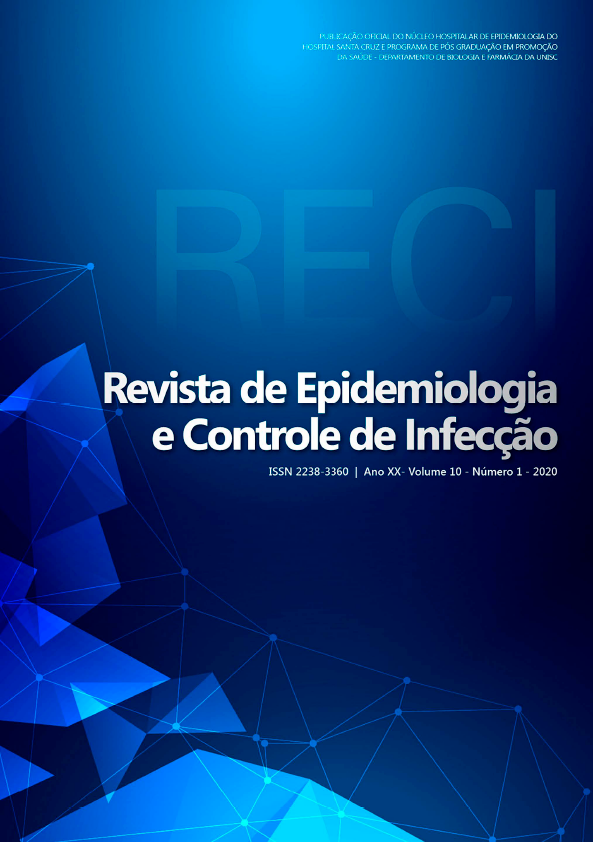Overview of syphilis in a northern Brazilian city from 2013 to 2017
DOI:
https://doi.org/10.17058/jeic.v1i1.13603Palavras-chave:
Saúde Pública – Infecção – PrevalênciaResumo
Justifications and Objectives: Syphilis is the most widespread bacterial infection in the human population, being the main form of transmission through sexual contact. It was analyzed the epidemiological data of the population of the city of Rio Branco, Acre, Brazil, with a positive diagnosis of syphilis between 2013 and 2017. Methods: This is a descriptive, cross-sectional study, with a quantitative approach applied to data from Acre’s Central Public Health Laboratory of the population infected with T. pallidum. Results: Of a total of 5,239 people infected with syphilis, 56.8% are female between the ages of 20 and 30 years old and self-declared to have mixed ethnicity. Moreover, 1,006 pregnant women, 43% of whom were between 11 and 20 years old and 37.5% were in the 2 nd trimester of pregnancy. For live births, 107 children with early congenital syphilis were diagnosed. Conclusions: Infection prevention information should be intensified, especially for people who are unaware of STIs in the city, such as adolescents, elderly people and indigenous populations, in order to avoid syphilis transmission.Downloads
Downloads
Publicado
Como Citar
Edição
Seção
Licença
The author must state that the paper is original (has not been published previously), not infringing any copyright or other ownership right involving third parties. Once the paper is submitted, the Journal reserves the right to make normative changes, such as spelling and grammar, in order to maintain the language standard, but respecting the author’s style. The published papers become ownership of RECI, considering that all the opinions expressed by the authors are their responsibility. Because we are an open access journal, we allow free use of articles in educational and scientific applications provided the source is cited under the Creative Commons CC-BY license.


